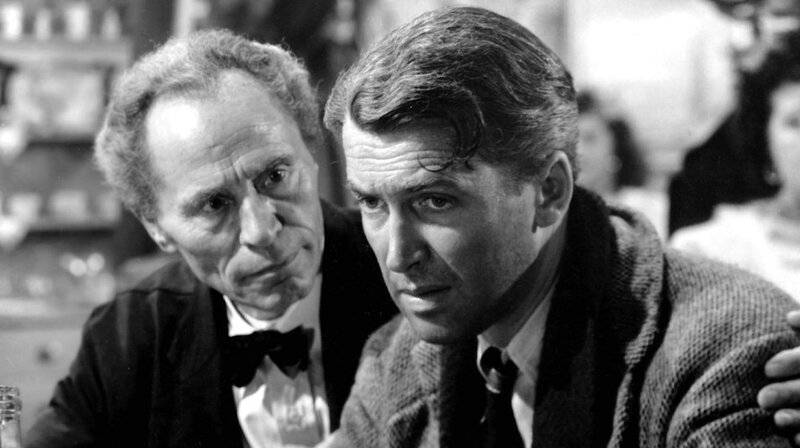[Editor's Note: It's A Wonderful Life is a holiday classic that also contains a critique of capitalism. But what if Bedford Falls was a real place? What would it look like today?]
BEDFORD FALLS TODAY (NOT SUCH A WONDERFUL LIFE)
 BEDFORD FALLS, NEW YORK) Seventy-three years ago Bedford Falls became famous as the hometown of George Bailey, hero of It's A Wonderful Life. A lot has changed in this small town in upstate New York since that time.
BEDFORD FALLS, NEW YORK) Seventy-three years ago Bedford Falls became famous as the hometown of George Bailey, hero of It's A Wonderful Life. A lot has changed in this small town in upstate New York since that time.Most notably, the Building and Loan run by the Bailey family no longer exists. Like other such institutions it went under during the savings and loans crisis of the 1980s. During the 1970s George Bailey passed the business down to his children, who took advantage of Reagan-era deregulation to engage in real estate speculation. The town's economy was not strong enough to support such risky investments, a familiar story across the country.
The Building and Loan's fate was mirrored by that of the local mill, which shut its doors in the 1990s after years of downsizing and layoffs. With the decline of local manufacturing the job opportunities available to residents of the town drastically decreased. Nowadays young people who get an education do not even have the option of choosing to stay home like George Bailey did. There simply is no work requiring their degrees. Those people end up in bigger cities in the region, often with fond memories of a place they are estranged from out of necessity, rather than choice. Those who lack education have few options in Bedford Falls as well, and what jobs do exist are mostly minimum wage work in the service sector.
Todd Bishop, whose grandfather was famed local cabbie Ernie Bishop, said "I drive Uber but there's not much business in a town this poor. Mostly getting drunk people home from bars. Apart from that I work part-time at the local gas station."
The once glittering main street has gone dark, with many storefronts having been empty for decades. Gower's Drugstore became a pawnshop before closing for good ten years ago. An empty home like the one the Bailey family took over has gone from being a rare oddity to a typical sight. The one advantage to living in Bedford Falls is the low cost of home ownership due to depopulation.
The land downtown has been passed down from Henry Potter -George Bailey's economic rival- to his descendants. All but one live outside Bedford Falls, most having moved to the New York City area. These absentee landlords see their holdings more as an heirloom or tax write-off than a viable business commodity. The one exception is Jacob Potter, a twenty-something descendent of Henry who has started a microbrewery and axe throwing club in one of the downtown buildings.
The commercial center began shifting to the highway on the edge of town in the 1980s, but the closing of the mill has meant even the absence of big box stores like Wal-Mart. Dollar stores are the only retail left in Bedford Falls. For anything else residents have to drive several miles to either Rochester or Syracuse. The one industry doing well in the region is the medical industry, which makes money from an aging population and a spike in opioid addiction.
George Bailey Jr still lives in his family's old Victorian home in Bedford Falls, even after the Savings and Loan debacle. "I know my father did a lot for this town, but keeping a town afloat isn't a one person job. An individual can't hold back a tidal wave. I have no doubt he made a difference, but I am almost glad he died thirty years ago so he didn't have to see what's happened."
